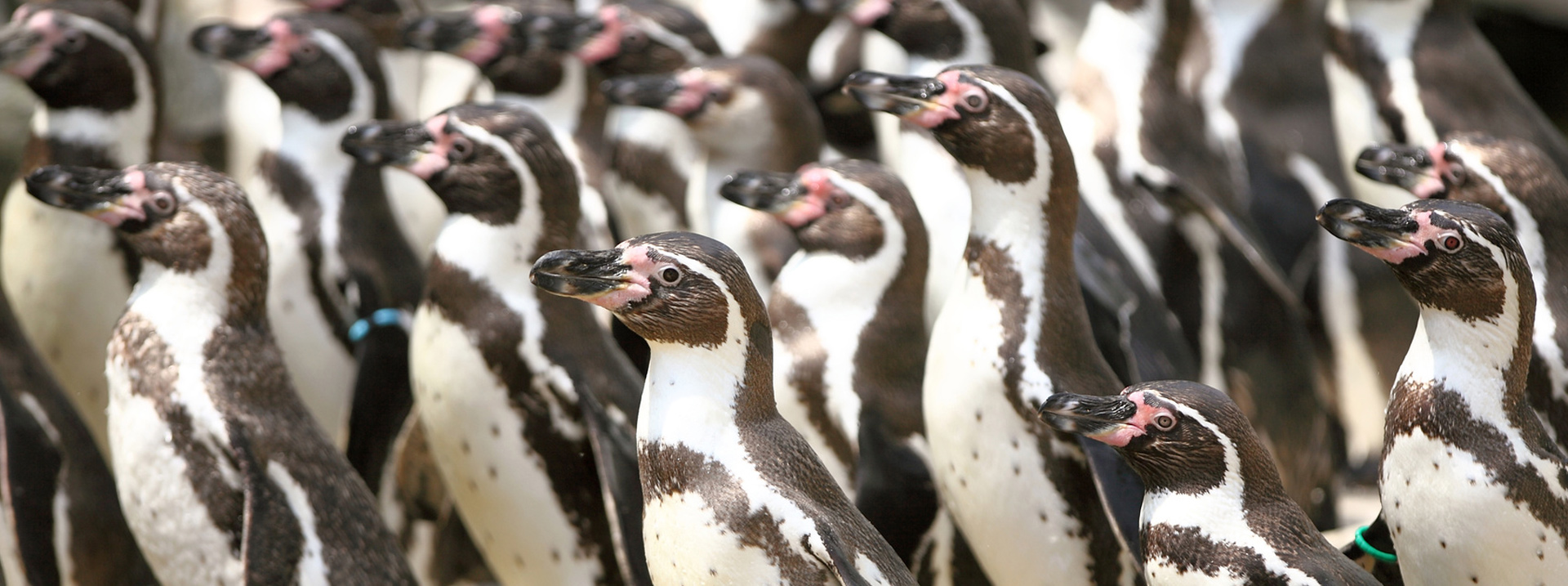

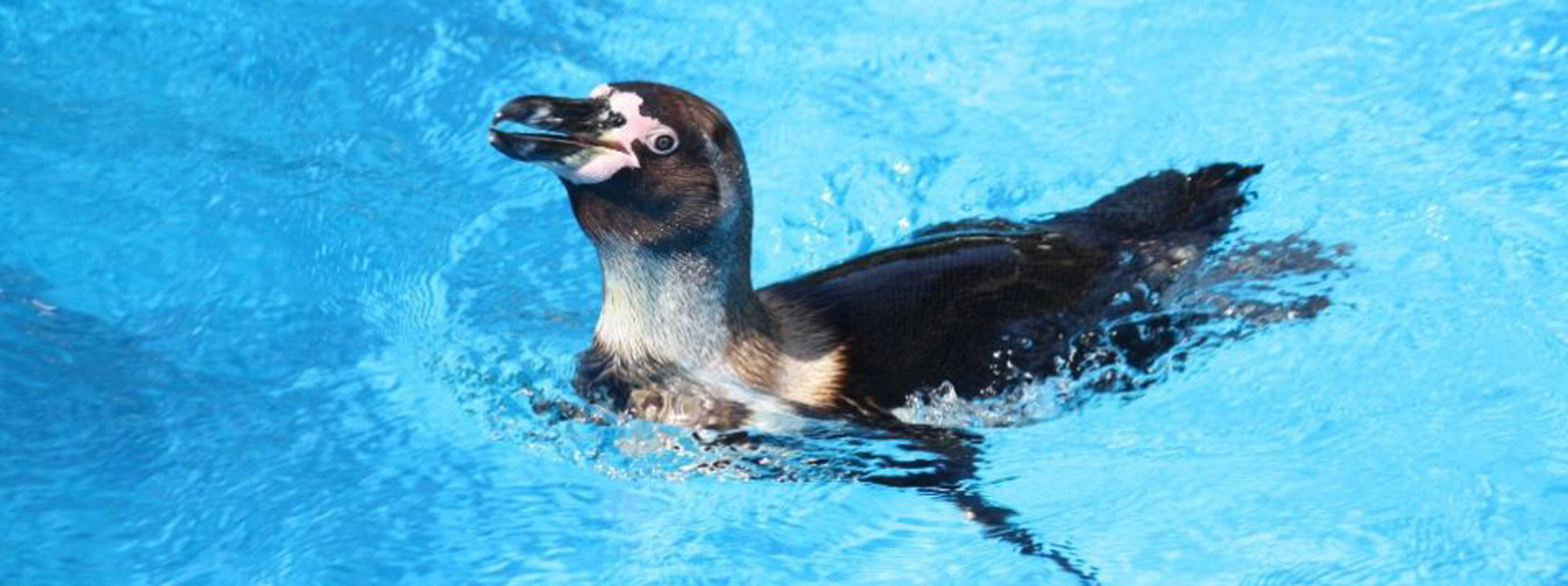
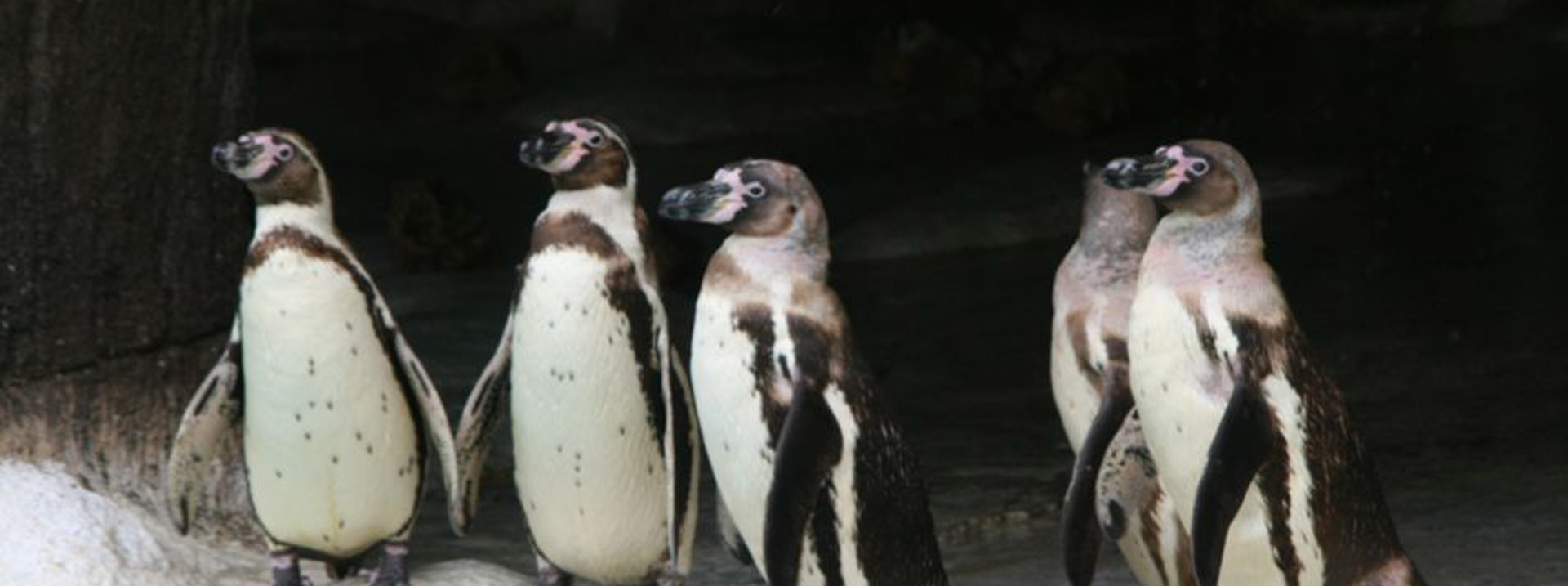
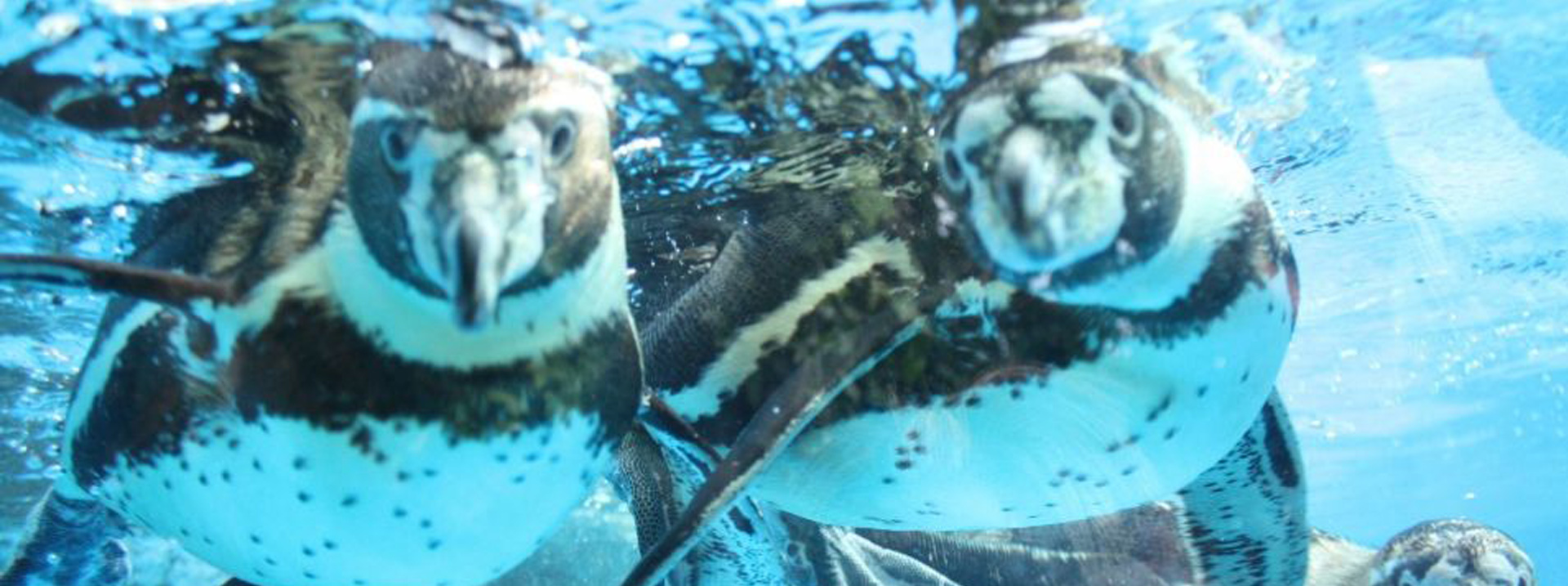
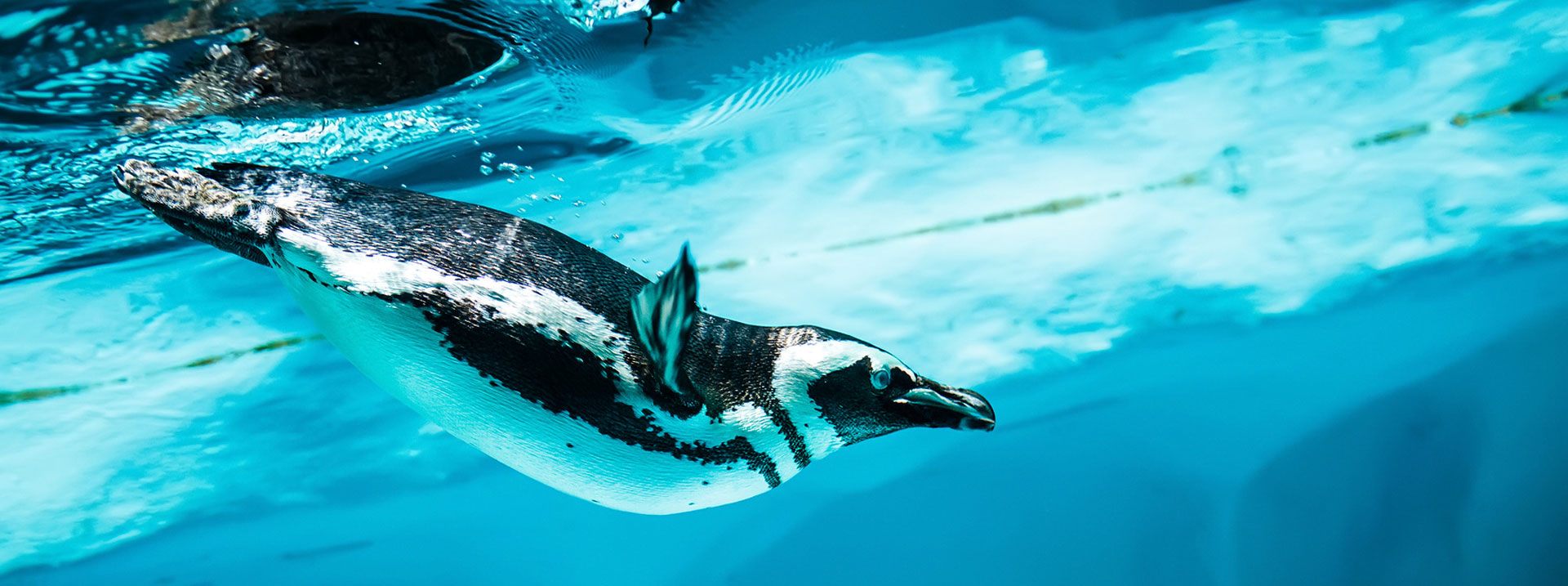
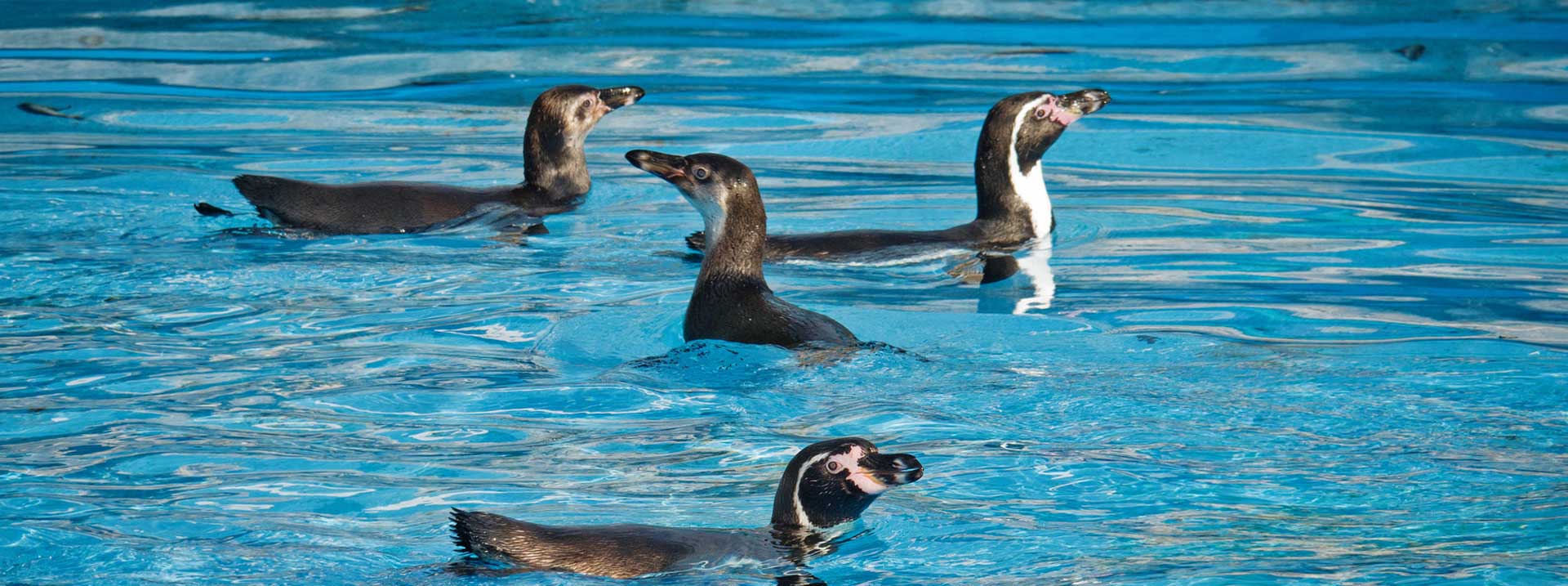
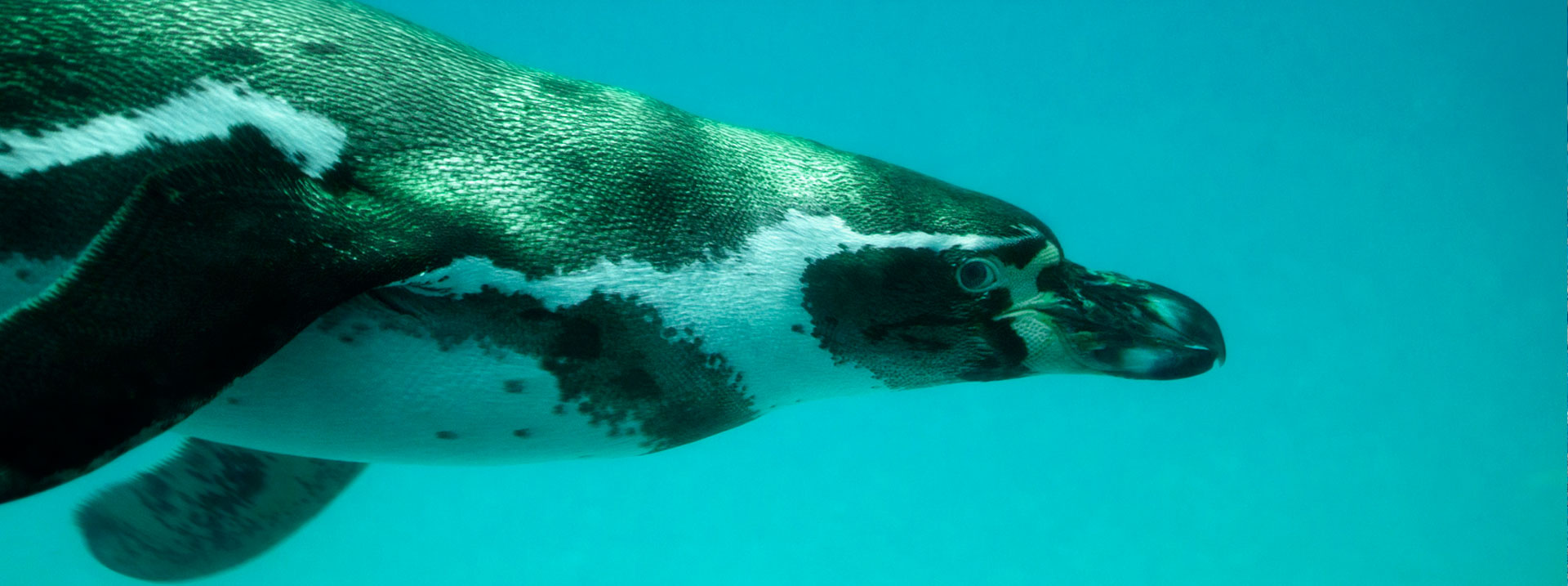
Penguin
Spheniscus humboldti
The Humboldt penguin, Spheniscus Humboldti, is a flightless bird that lives in the Pacific Ocean along the west coast of South America in Chile and Peru which is crossed by the Humboldt Current and Peru, from 5 º to 41 º 55 ‘degrees south latitude.
Species
Spheniscus humboldti
Order
Sphenisciformes
Family
Spheniscidae
Danger of Extinction
Amenazada (vulnerable)
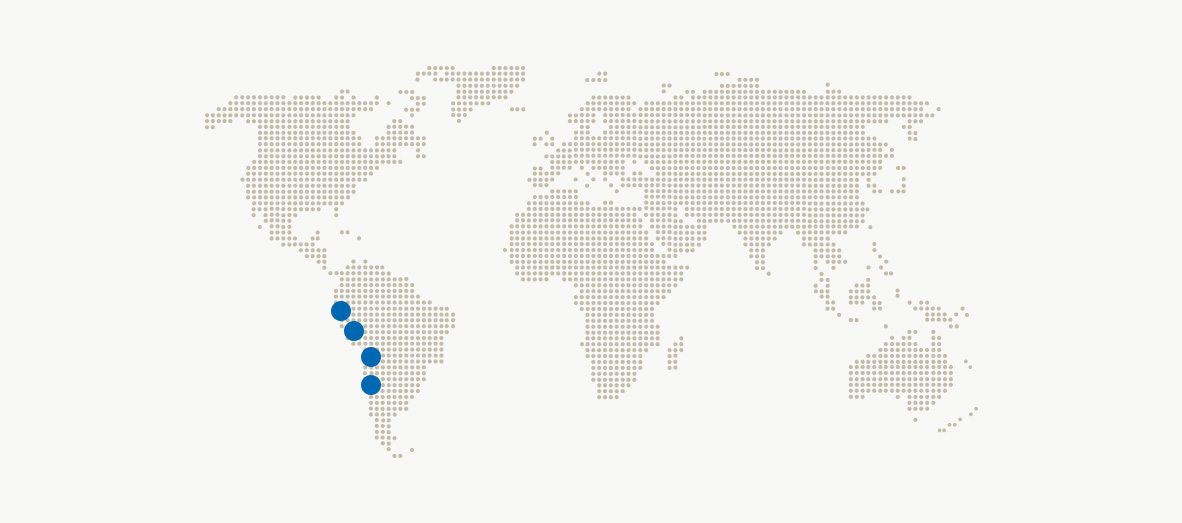
Features
It is a bird of compact appearance with black plumage on the back and white on the chest and belly. It also has a band of black feathers around the chest and some spots of the same color on the belly. The skin on your face is pink and has a gray beak and black spots. It measures 45 to 60 inches and weighs about four or five kilograms.
Customs, food and habitat:
Very rarely stray specimens found in the Atlantic, north to Mar del Plata in Argentina. In recent years their populations have been drastically reduced due to the shortage of nesting sites, reduced food supply, predation by man and, above all, the impact of severe weather events such as El Niño.
It lives in colonies on the tips and protected offshore islands along with other species of seabirds. To excavate nest holes in guano or salty soil or use cracks between the rocks and caves. One of the problems identified by the researchers is that when removing the surface guano islands, penguins were prevented from digging in the hard rock, significantly limiting their chances of reproduction.
The penguins lay two eggs of different sizes which are incubated by both parents for about 35 days. Usually only the first chick survives. The pigeons are protected in the nest until they are 20 days, then joined with the young of other penguins to form large childcare while parents go to sea to feed. Both parents continue to feed their young for two and a half months.
Curiosities
The Humboldt penguin is endangered. Despite being subject of interest and study by researchers is constantly pursued for its gastronomic qualities. Chicks are also sought to be used as household pets.
In Mundomar we contribute to the conservation of this animal species and research for continuity.

